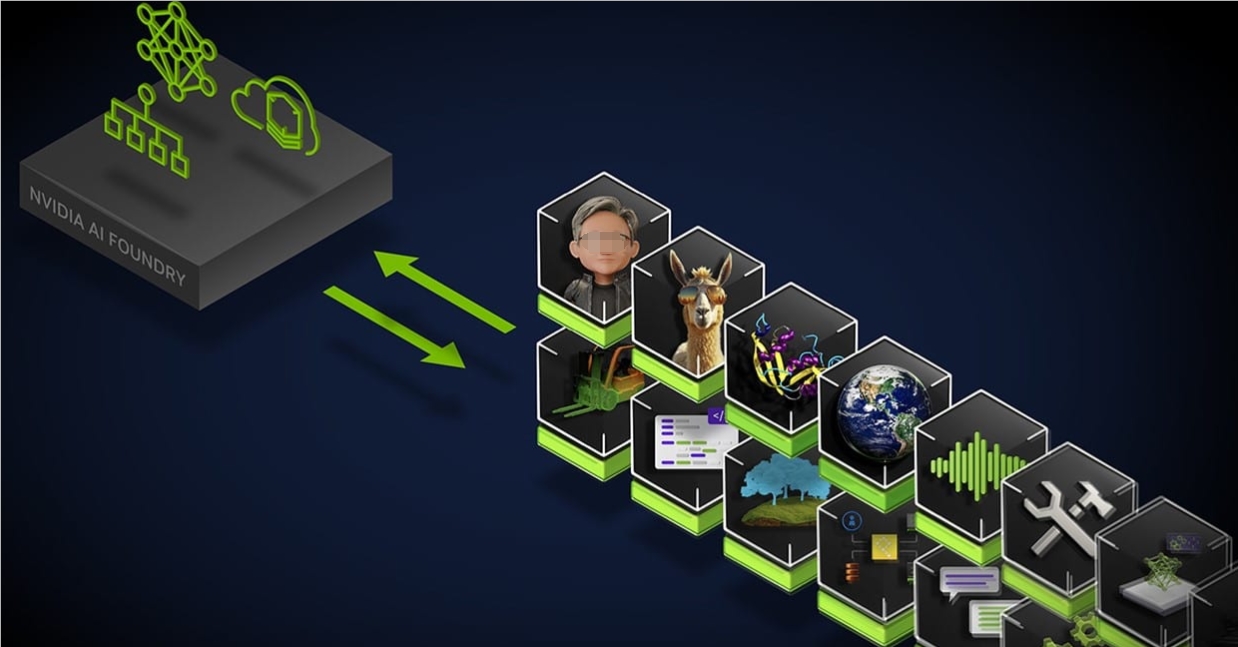NVIDIA has released a new AI service, AI Foundry, designed to help enterprises build customized large language models to meet their specific business needs. This move may trigger an upsurge in enterprises customizing AI models, especially in the context of Meta’s release of Llama 3.1 and the growing concern about AI security and governance issues. AI Foundry integrates NVIDIA's hardware, software and expertise to provide pre-trained models, high-performance computing resources and expert guidance to help enterprises significantly improve model accuracy and simplify the model deployment process through NIM services. This move not only meets the needs of enterprises for advanced AI customization, but may also avoid the risks of using public general models.

AI Foundry combines NVIDIA's hardware, software tools and expertise to help companies develop customized open source models for specific business needs, such as Meta's just-released Llama 3.1. The launch of AI Foundry comes at the right time as enterprises increasingly look to leverage generative AI technology while also wanting to control their own data and applications.
NVIDIA said that by customizing these open source models, the performance of the models can be significantly improved. For example, the accuracy of a customized model can be improved by nearly 10 percentage points. AI Foundry not only provides a large number of pre-trained models, but also provides high-performance computing resources and model customized evaluation through NVIDIA's DGX Cloud and NeMo toolkit. In addition, NVIDIA’s team of AI experts will provide professional guidance.
In addition to AI Foundry, Nvidia also launched NIM (Nvidia Inference Microservices), a service that packages customized models into a containerized, API-accessible format, simplifying the model deployment process. NIM marks a major breakthrough for NVIDIA in AI model deployment and demonstrates the company’s years of research and development.
The timing of this release is also very delicate. It coincides with Meta’s release of Llama 3.1, and it is also against the backdrop of increasing concerns about AI security and governance issues. By providing a service that enables enterprises to create and control their own AI models, Nvidia may be able to meet enterprises' needs for advanced AI while avoiding the risks of using public common models.
However, widespread deployment of customized AI models may also bring challenges, such as the fragmentation of AI capabilities across industries and the difficulty of maintaining consistent AI safety and ethical standards. As competition in the AI industry intensifies, NVIDIA's AI Foundry will become an important step in its future layout in the enterprise AI market.
Official blog: https://blogs.nvidia.com/blog/ai-foundry-enterprise-generative-ai/
All in all, NVIDIA's AI Foundry provides enterprises with powerful tools for customizing AI models and simplifies the deployment process through NIM services. This will have a profound impact on enterprise-level AI applications, but it also requires attention to potential challenges such as fragmentation of AI capabilities and security ethics. Nvidia’s move is undoubtedly an important strategic layout for its competition in the enterprise AI market.